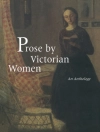Traces the career of the widely read cultural historian Johannes Scherr and his development of a new kind of historical writing for the increasingly globalized 19th-century world.
The German nineteenth century saw a boom in publishing and reading that created opportunities not only for
Dichter, creators of great literature, but also for
Schriftsteller, authors of the second rank. Among the latter were cultural mediators who helped readers negotiate the ever-expanding galaxy of print. Few achieved greater prominence than Johannes Scherr, whose remarkable career as a critic, anthologist, and historian of German and world literature began in the turbulent
Vormärz era and continued during years of exile in the unlikely setting of the Zurich Polytechnic. He wrote from the vantage point of Switzerland, but his books were published in Germany, where his polemical style found favor.
Andrew Cusack’s study traces the process of Scherr’s literary socialization as mediator in the ‘contact zone’ formed by the Kingdom of Württemberg and Switzerland, whose liberal project of
Volksbildung inspired him. It considers how his liminal position between nations and between the humanities and the sciences led him to develop a form of historical authorship for the increasingly globalized nineteenth century. The book considers Scherr’s engagement with the totalizing paradigms of cultural history and world literature and sets his pessimistic worldview in the context of the materialism and violent political agitation that threatened democratic values in Switzerland and elsewhere.
Tabela de Conteúdo
Acknowledgments
Note on Translations and the Use of German Texts
Introduction: The Success and Failure of Johannes Scherr
Scherr’s Liminality: Between Nations and Academic Cultures
The Cultural Historian as Mediator
Worlding German Literature
Weltschmerz and Pessimism-Scherr’s Old-Age Style
Conclusion: Where Next for Scherr?
Appendix: Overview of Essays in the
Menschliche Tragikomödie
Bibliography
Sobre o autor
ANDREW CUSACK is Senior Lecturer in German at the University of St Andrews. He worked previously as an Assistant Professor in Dublin before taking a postdoctoral fellowship of the Alexander von Humboldt Foundation at the Humboldt-Universität zu Berlin. In 2012, he joined the University of St Andrews. He is the author of The Wanderer in Nineteenth-Century German Literature: Intellectual History and Cultural Criticism (2008). Together with Barry Murnane he co-edited the volume Popular Revenants: The German Gothic and Its International Reception, 1800-2000 (2012) and has recently co-edited (with Michael White) a volume entitled Der Fontane-Ton: Stil im Werk Theodor Fontanes (2021). He has published widely on a range of topics in the ‘long nineteenth century’ including articles on Büchner, Fontane, Heine, Mörike, Schiller, and on Karl Philipp Moritz. His second monograph: Johannes Scherr: Mediating Culture in the German Nineteenth Century was published by Camden House in 2021.












